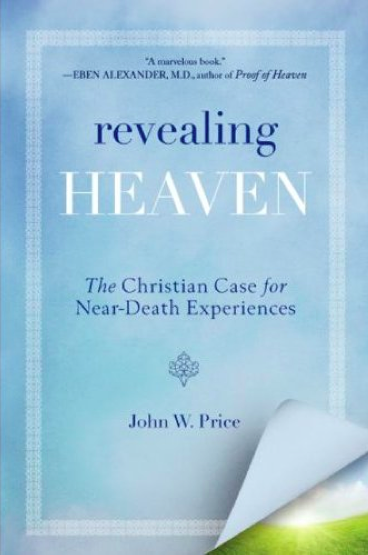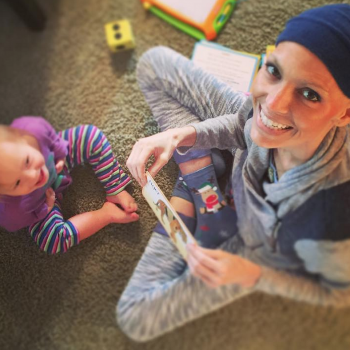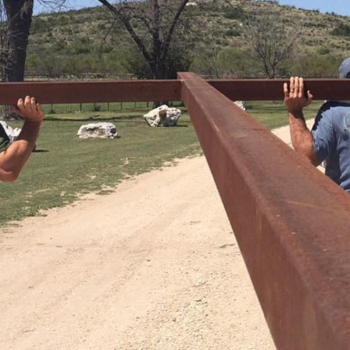We’ve all heard the stories of people who’ve had near death experiences, invariably, they told in the hushed tones of ghost stories around a camp fire on a junior high camp out.
Who isn’t interested in what happens after death? All of us know someone who has died or is dying. Plus, because we’re all heading in that direction, it’s a fascinating – and possibly terrifying – subject. A new book, called “Revealing Heaven: The Christian Case for Near-Death Experiences,” takes these stories out of the closet and into the light of scientific documentation – with decidedly mixed results.
John W. Price is a Episcopalian pastor, was a chaplain at St. Luke’s Episcopal Hospital in Houston, and is a member of the Near Death Experience Research Foundation. (Yep, that organization apparently has the largest near death experience website in the world.) Price, who has studied this subject for years, discovered near death experiences have been around for a long time: the earliest recorded near death experience he found was in Book 10 of Plato’s Republic. Carl Jung, the twentieth century psychiatrist, also had a near death experience which he wrote about in 1944. More recently, ABC News’ Bob Woodruff had a near death experience after being injured in Iraq. Presumably, with the increased medical care and capabilities, the number of near-death experiences have grown exponentially. So, what do people who have temporarily died, only to be saved by doctors, say? What did they see? Here’s an ABC report — with Woodruff — which shows some of the recurring themes:
Price reports that the similarities don’t seem to be coincidental:
The most common account involve overwhelming feelings of love and peace, highlighted by an encounter with a welcoming being of light, and all-encompassing godlike presence, and being surrounded by beauty and music. As well, there is a joyful reunion with deceased loved ones and pets, or spirits, perhaps with a period of instruction. A moment of choice or being told that it is not one’s time can occur at any point, followed, finally by a return to the physical body.
He also observes that near death experiences have been reported in every culture, every country, by every race and ethnicity, and by people in every religious group. Yet, most near death experiences are reported in similar ways and follow the same general pattern. Though Price does a great job describing what might happen after death, he fails miserably when drawing conclusions about what near death experiences should teach us about life.
The main problems of the book arise when he asks this general question: Since so many non-Christians have warm, positive after-death experiences, what does that mean for people who believe that Jesus is the way to Heaven? After all, people from all over the world have reported the same general after life experiences. Price did document a handful of people who reported “hellish” near death experiences, but all of these people shared one characteristic: they were mean.
“Meanness,” according to Price, is the unforgivable sin, because it conflicts with the admonition of Christ to love one another. But what about the other sins? Price studied the near death experiences of homosexuals, and discovered that they also report feeling love and warmth during their near death experiences. This causes Price to assert that most of the behaviors we call sin actually are quite acceptable, most notably, homosexuality, abortion, and masturbation. God, he concludes, is mainly concerned with how we live our life, not these types of sins.
Also, since people of all religions report this warmth and love, Price concludes that Jesus is not necessary for salvation. (Too bad Jesus didn’t read Price’s book before allowing himself to be crucified on the cross. #BadTiming!) Price states:
“I cannot say in good conscience say that Christianity is the only way. I can say it is the way for me.”
In other words, this book should not be called the “Revealing Heaven: the Christian Case for Near Death Experiences.” Instead, a more accurate subtitle (but admittedly less catchy) would be “Revealing Heaven: A Moralistic Therapeutic Deist’s Case for Near Death Experiences.” I would agree with Price that the near death experiences are not in conflict with the Bible. However, Price’s conclusions are in conflict with the Bible.
Do his theologically inaccurate conclusions ruin the book? Not for me.
First of all, reading the stories provided comfort to people who were close to others who’d already died. Why? Because all of the people in Price’s book said they were specifically told, “It’s not your time yet.” The stories confirm that God has a plan for each of us, and that includes a “specific time” for each of us to die. This provides great comfort to us — especially nurses, doctors, and soldiers who see death constantly and up close. Death is unavoidable. If it’s your time to go, no extra precautions or measures could have thwarted that moment. Also, reading the stories give hope to people who are approaching death, especially the stories of being reunited with loved ones who have died.
Price’s conclusions, in fact, could be an interesting way to talk through some theological issues with your family. In fact, my 14 year old daughter and I took turns reading it aloud to each other one afternoon, and we both enjoyed its fascinating research and chill-bump inducing stories of after death tales. We also enjoyed going over Price’s Episcopalian theological squishiness with a fine tooth comb. It was actually fun to see the book through my daughter’s theological perspective. For example, she said, “This book tries to make it better for the reader, by saying we don’t have to live up to any Biblical standard except to be loving. But,” she added, “I’m frequently mean.”
My son Austin was not in the room, or he would’ve added an “Amen!”
“The better message is the true gospel, which is Jesus paid the price,” she said. “You don’t have to do anything to win God’s favor. In Christ, you’ve got it!”
In fact, Price pivots and says that “Ethics addresses the question of how we shall conduct our lives, make our decisions, and plan our paths… with selfless love, agape love…”
“But what is this ‘Ethics?’” my daughter asked. “If you’re good in order to curry favor with God and not go to Hell, doesn’t that make your love so selfishly oriented that it negates the virtue of it? We aren’t capable of agape love.”
There’s much wrong with this book, but Price does a great job of painting a (partial, incomplete) picture of death as a moment in a continuum of life.
Do you believe in these after death experiences? Have you had one? How should these experiences affect our lives?










